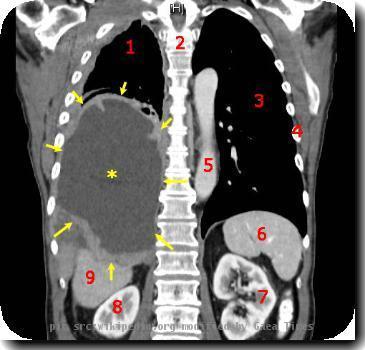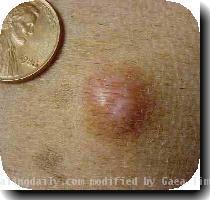Colon cancer death rate could fall substantially by 2020, optimistic experts predict
By Mike Stobbe, APMonday, December 7, 2009
Experts: Colon cancer deaths could make big drop
ATLANTA — Colon cancer deaths could drop dramatically in the next decade because of better screening and treatment, according to an optimistic new prediction by top researchers.
The estimate was made in an annual report that shows that, overall, the U.S. cancer death rate is continuing to decline, as it has since the 1990s.
The report released Monday focuses largely on cancers of the colon and rectum, which together are the third leading cancer killer in the United States. An estimated 50,000 people will die from it this year.
The battle against colorectal cancer has been a growing success story: The death rate dropped roughly 20 percent in the last 10 years, according to American Cancer Society figures.
The new report — by researchers at the advocacy group and other organizations — predicts that death rate will drop even more over the next decade. By 2020, the rate could be half what it was in 2000, they said.
The prediction assumes colon cancer screening and improved chemotherapy treatment will become more and more common, and colon cancer contributors like smoking and red meat consumption will decline.
The prediction is “optimistic but realistic,” said Elizabeth Ward, who oversees surveillance and health policy at the American Cancer Society.
But some other experts said such a large drop could require far-reaching changes in how many people eat a healthier diet, have health insurance and can get good medical care.
“I think it’s a little bit more optimistic than realistic,” said Dr. Edward J. Benz Jr., president of the Dana-Farber Cancer Institute in Boston.
The new report looks at cancer trends from 1975 through 2006. The Cancer Society and others reported 2006 cancer death statistics in May, but this report provides further analysis and adds the predictions about colorectal cancer.
Cancer is the nation’s No. 2 killer, behind heart disease, and accounts for nearly a quarter of annual deaths.
While deaths rates from many of the major cancers have been declining, the rate for liver cancer has been increasing. In women, deaths from pancreatic cancer are rising. In men, esophageal cancer and melanoma deaths are increasing.
There are differences among different racial and ethnic groups. Overall, cancer death rates are highest in black men and women. But pancreatic cancer death rates have been increasing for whites and not blacks.
But overall, cancer diagnoses and death rates have declined significantly, a success attributed largely to improvements in screening and treatment and declines in smoking.
The colorectal cancer death rate was about 17 deaths per 100,000 people in 2006. Better chemotherapy drugs have been used along with surgery to improve survival. And as of 2005, about half of U.S. adults aged 50 or older had had a recommended screening, such as a colonoscopy within the last 10 years or a stool blood test within the last year.
“It seems to me that it’s a cascade of things that include medical science and technology advances,” said Dr. Michael Fisch, head of general oncology at the University of Texas M. D. Anderson Cancer Center in Houston.
The report’s prediction is based on a number of assumptions. Among other things, it assumes that the number of people who are screened will increase, fewer people will smoke or eat red meat more than twice a week, and the obesity rate will hold about steady.
Doctors say smoking and obesity contribute to colorectal cancer deaths, by increasing the odds of getting cancer or making treatment more difficult. While the U.S. adult smoking rate has gradually been declining for decades, the obesity rate has been climbing.
The new report was put together by the Cancer Society, the National Cancer Institute, the Centers for Disease Control and Prevention and the North American Association of Central Cancer Registries.
It’s being published in the journal Cancer.
Tags: African-americans, Atlanta, Colon And Rectal Cancer, Demographics, Diagnosis And Treatment, Diseases And Conditions, Georgia, Health Statistics, North America, Public Health, Race And Ethnicity, smoking, United States

